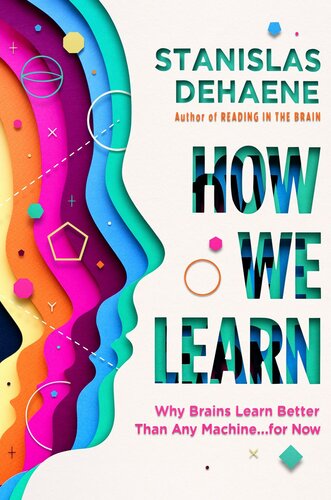

Most ebook files are in PDF format, so you can easily read them using various software such as Foxit Reader or directly on the Google Chrome browser.
Some ebook files are released by publishers in other formats such as .awz, .mobi, .epub, .fb2, etc. You may need to install specific software to read these formats on mobile/PC, such as Calibre.
Please read the tutorial at this link: https://ebookbell.com/faq
We offer FREE conversion to the popular formats you request; however, this may take some time. Therefore, right after payment, please email us, and we will try to provide the service as quickly as possible.
For some exceptional file formats or broken links (if any), please refrain from opening any disputes. Instead, email us first, and we will try to assist within a maximum of 6 hours.
EbookBell Team

4.1
100 reviews“There are words that are so familiar they obscure rather than illuminate the thing they mean, and ‘learning’ is such a word. It seems so ordinary, everyone does it. Actually it’s more of a black box, which Dehaene cracks open to reveal the awesome secrets within.”‒‒The New York Times Book Review
An illuminating dive into the latest science on our brain's remarkable learning abilities and the potential of the machines we program to imitate them.
The human brain is an extraordinary learning machine. Its ability to reprogram itself is unparalleled, and it remains the best source of inspiration for recent developments in artificial intelligence. But how do we learn? What innate biological foundations underlie our ability to acquire new information, and what principles modulate their efficiency?
In How We Learn, Stanislas Dehaene finds the boundary of computer science, neurobiology, and cognitive psychology to explain how learning really works and how to make the best use of the brain’s learning algorithms in our schools and universities, as well as in everyday life and at any age.